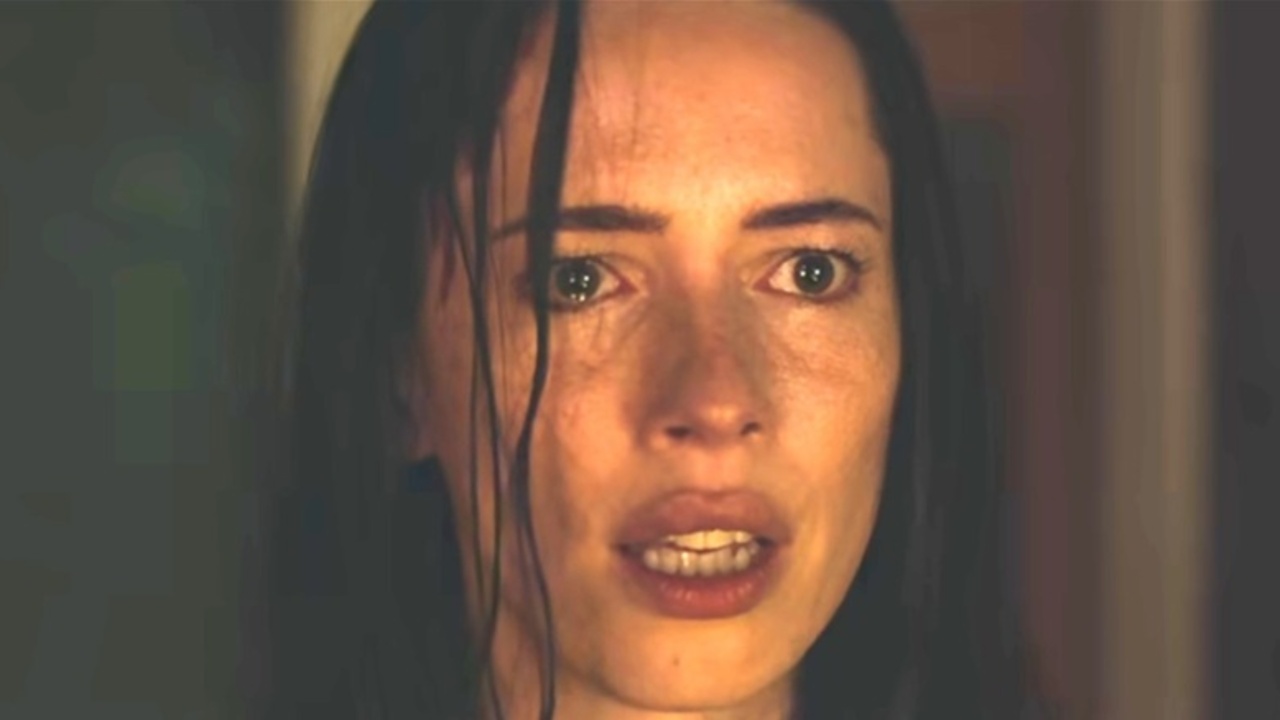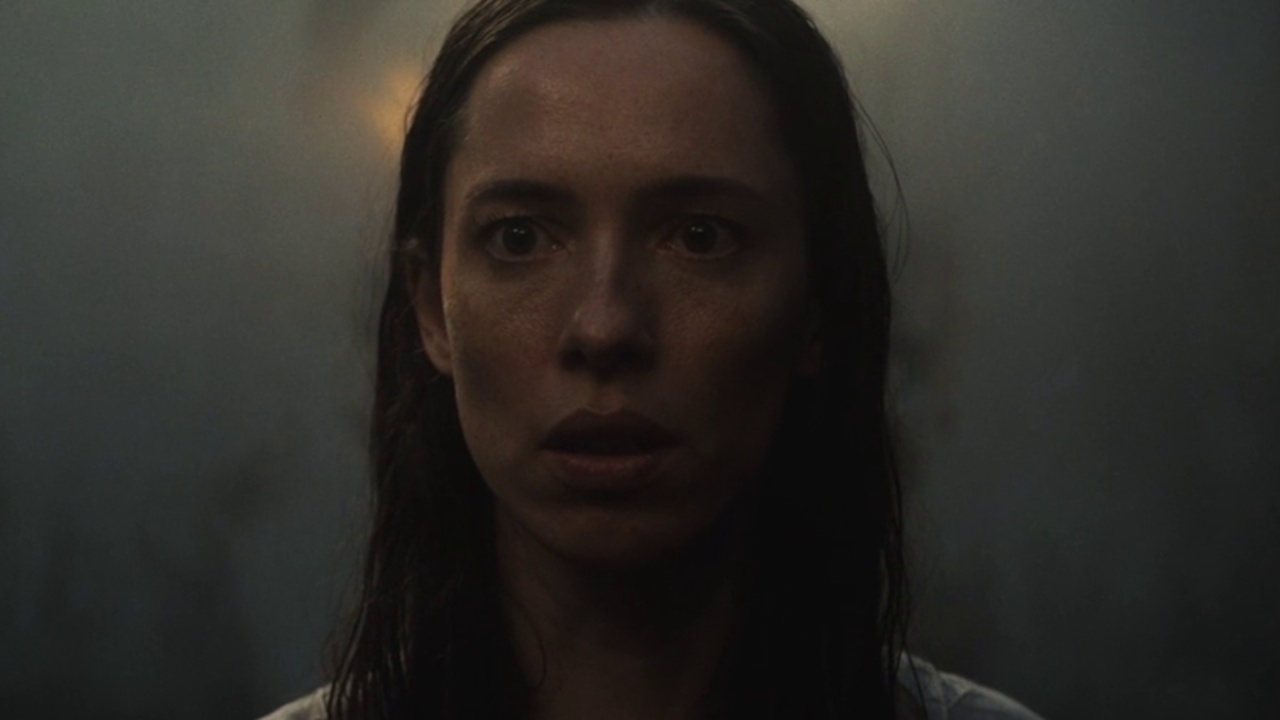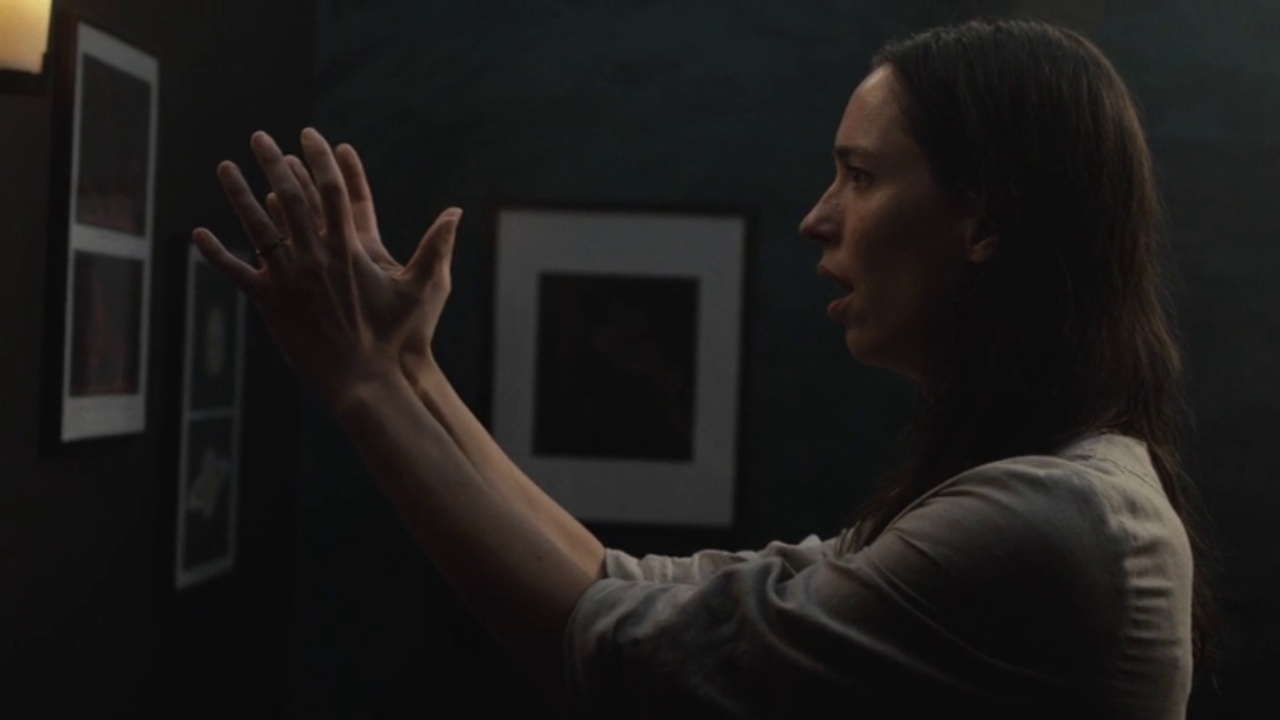The Night House stands out in the horror genre by combining supernatural terror with deep psychological tension. Unlike typical Hollywood horror, which often relies on jump scares, this film creates unease gradually. The fear comes from suspense, mood, and emotional complexity rather than sudden shocks. This cerebral approach positions the film closer to psychological horror traditions, emphasizing the characters’ inner struggles and the story’s thematic depth.
The film follows Beth, a widow coping with the sudden suicide of her husband, Owen. Initially, the story appears to be a classic ghost tale, reminiscent of Ed and Lorraine Warren-style stories. However, as Beth uncovers Owen’s hidden life, the story takes darker turns. She discovers that he had a secret, mirrored house across the lake where he lured and murdered women resembling her. These revelations intertwine with her grief, making the story both a personal journey and a suspenseful horror narrative.
Owen’s murderous behavior is influenced by a mysterious entity called “Nothing,” which Beth encountered after a near-death experience as a teenager. This being manipulates Owen into killing women in an effort to draw Beth to the other side. When his plan fails, he takes his own life. “Nothing” operates as both a literal threat and a symbolic representation of despair and existential fear, blurring the line between human choice and supernatural influence.

Grief, Despair, and the Supernatural Challenge Beth’s Will to Keep Living
Grief is the central driving force of the story. Beth’s investigation into her husband’s life is fueled by her inability to accept his death. Like in other modern horror films, such as The Babadook, the film suggests that the real terror lies in human emotion. Each new discovery adds to Beth’s emotional burden, reinforcing the idea that loss and grief can be more frightening than any supernatural force. Her journey illustrates how grief can compel people to confront uncomfortable truths.
The entity called Nothing remains deliberately ambiguous. It could be Death, a demon, or a space between life and the afterlife. The setting where Beth encounters it—a strange, red-lit version of the lake—suggests a void that is neither Heaven nor Hell. Nothing represents existential fear and the human struggle with mortality. Its focus on Beth highlights the tension between desire, fear, and survival, emphasizing emotional and philosophical stakes more than traditional horror logic.
In the climax, Beth faces Nothing on the lake, pressured to end her life. While the supernatural aspect remains unresolved, the story works as a metaphor for grappling with grief. Nothing embodies despair, urging Beth to surrender to hopelessness. Her decision to continue living represents overcoming emotional paralysis and reclaiming control. The ending is intentionally open, allowing viewers to interpret the events either as a literal supernatural encounter or as a symbolic confrontation with personal loss.

David Bruckner’s Vision and Modern Horror Transform Emotional Trauma Into Tangible Threats
Director David Bruckner compared The Night House to the Hellraiser series, citing shared themes of otherworldly forces and human confrontation with the unknown. He described the house as a metaphor for the mind, with its shifting rooms representing psychological complexity. The story addresses the fear of meaninglessness and the challenge of facing mortality. Bruckner’s approach mixes surreal imagery with emotional realism, creating a horror experience that engages both the intellect and the emotions.
The Night House reflects a trend in modern horror where internal emotions are turned into tangible threats. Films like The Babadook, Midsommar, Hereditary, and Pearl similarly personify grief, betrayal, and despair as monsters. By doing so, these movies emphasize the psychological and emotional dimensions of fear. In this film, the combination of grief and supernatural elements allows audiences to experience both literal suspense and symbolic commentary on human vulnerability and the consequences of unresolved trauma.
Critics largely praised The Night House for its tense atmosphere, psychological depth, and Rebecca Hall’s performance. It holds an 88% “Certified Fresh” rating on Rotten Tomatoes, though audience approval was lower at 69%. Some viewers found the ending ambiguous and hard to interpret, while others appreciated its thought-provoking nature. Reviews often highlighted the film’s ability to provoke reflection and maintain suspense, even when the conclusion left questions unanswered or required careful thought.
The Night House is a self-contained story that merges psychological and supernatural horror while examining grief and resilience. Beth’s confrontation with Nothing, whether literal or symbolic, shows her overcoming despair and reclaiming control over her life. The film does not require a sequel, as its themes are complete and meaningful on their own. It demonstrates that the most profound horror often comes not from external monsters, but from internal struggles, emotional trauma, and the human confrontation with loss and mortality.



